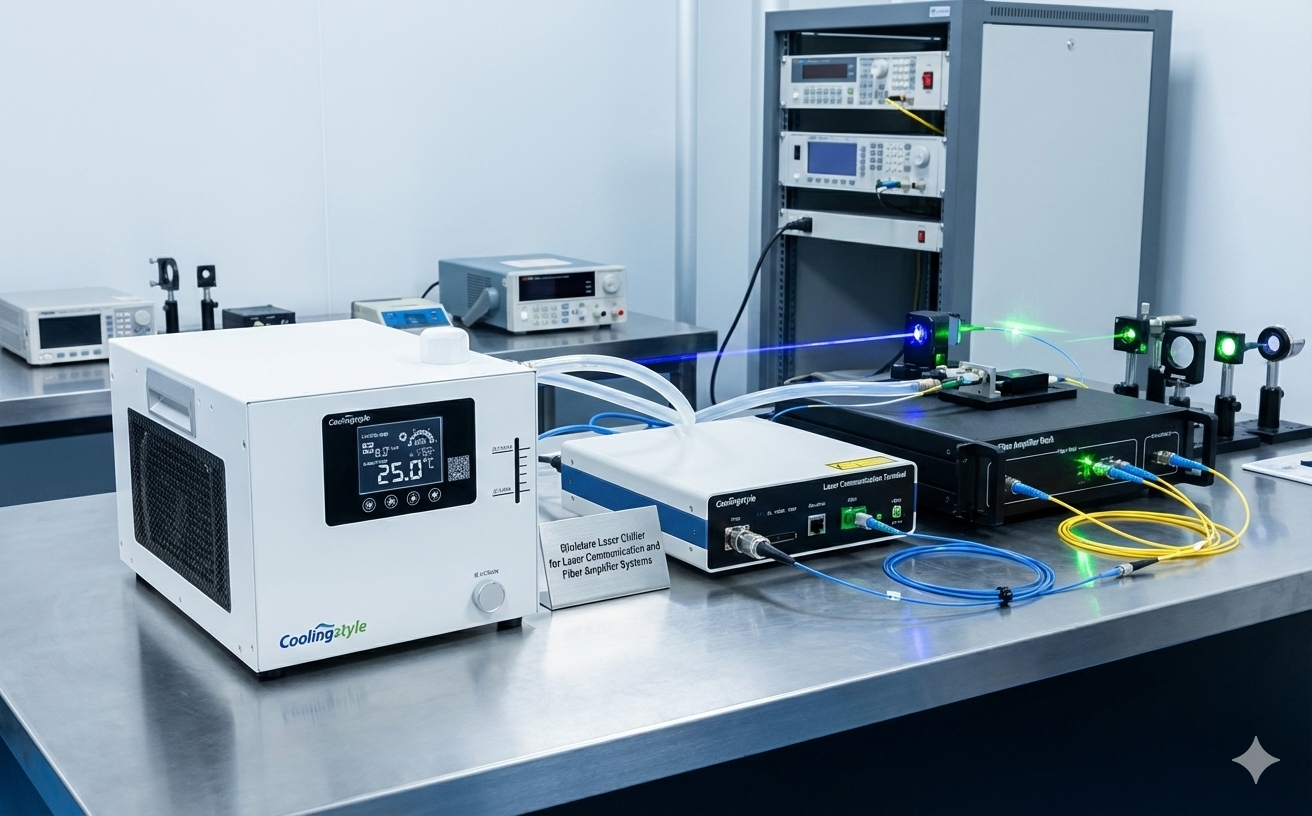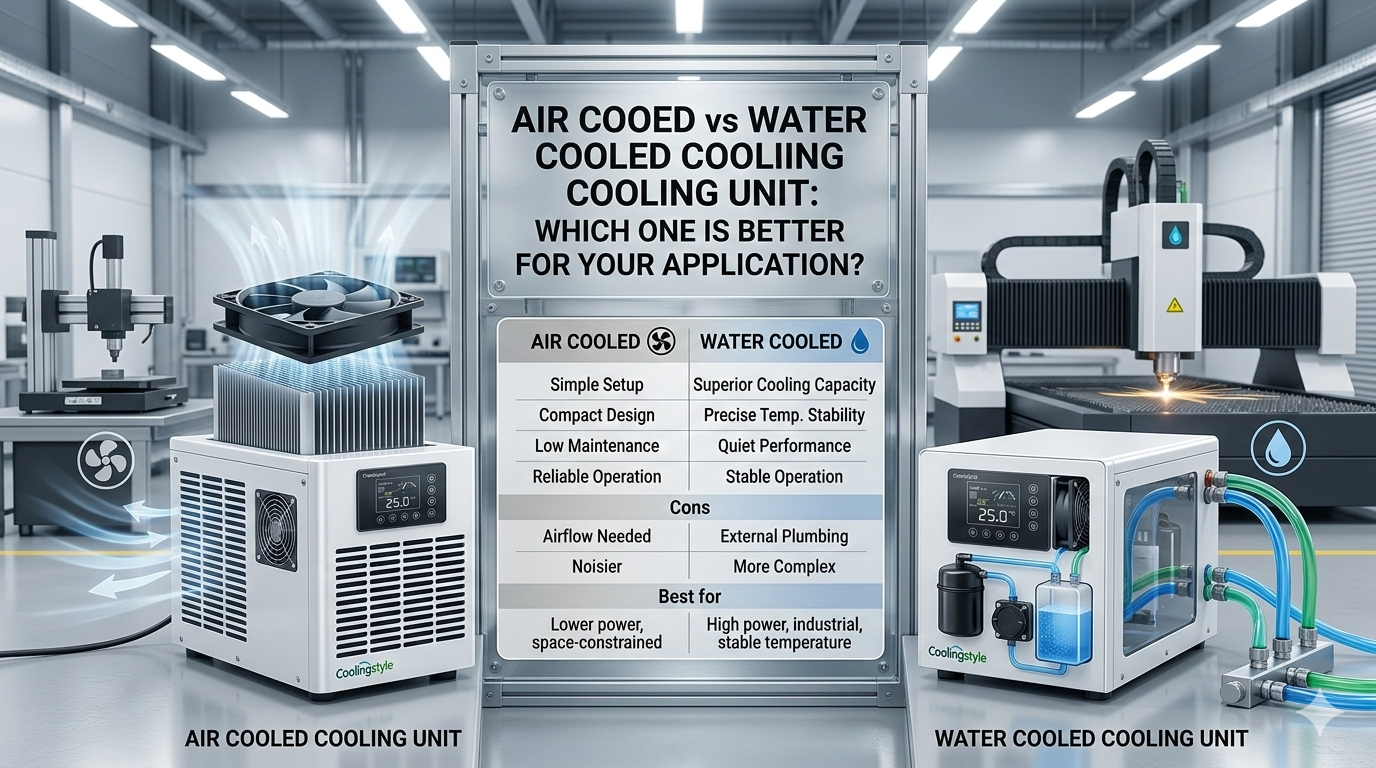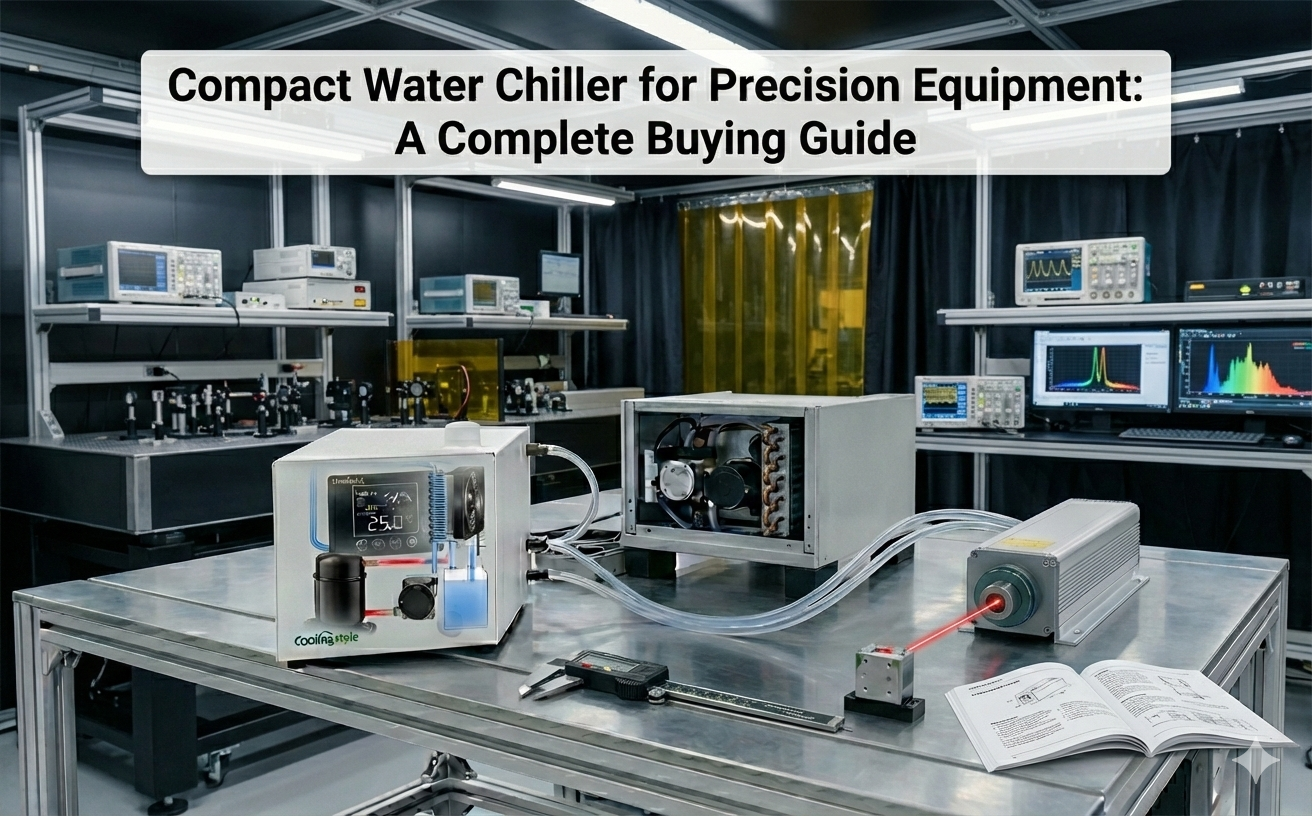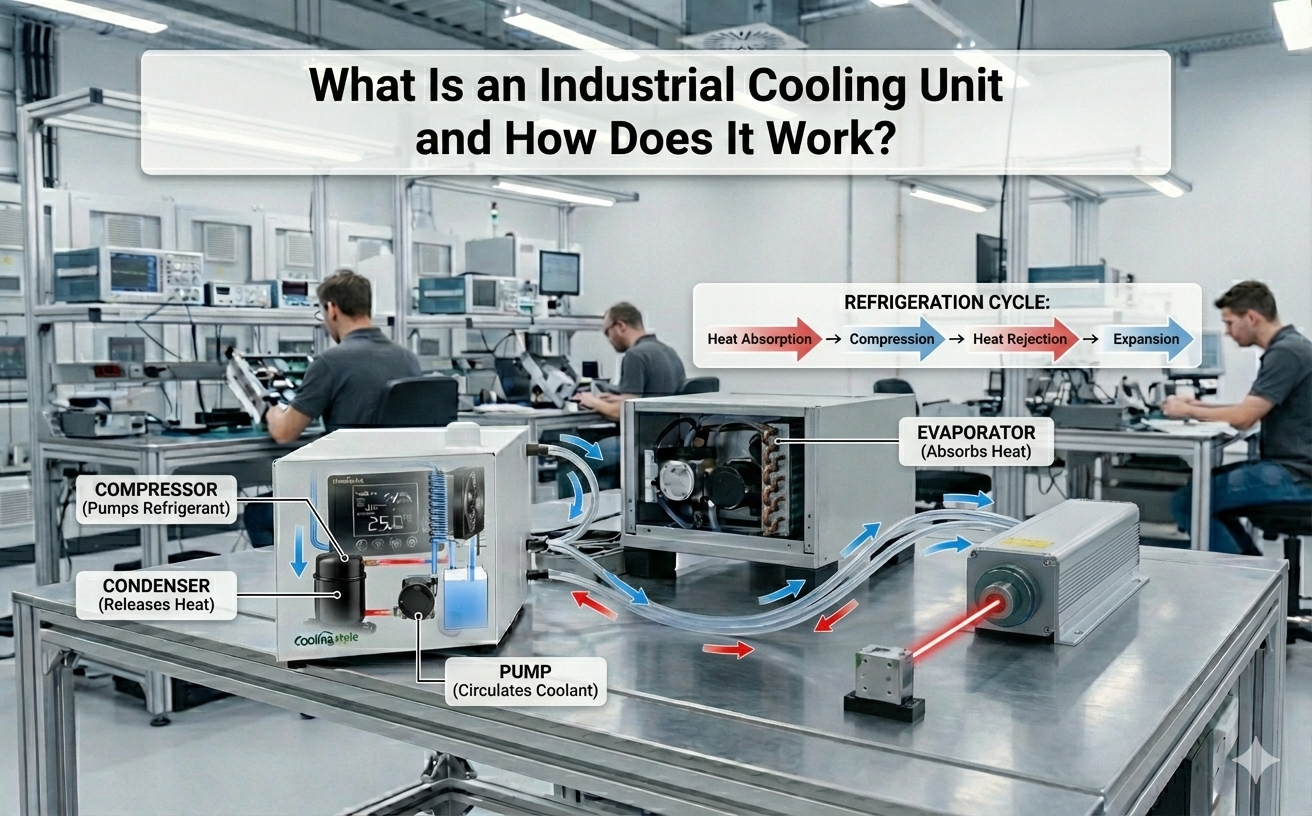In the pharmaceutical industry, maintaining the integrity of products is crucial. Small refrigeration compressors play a vital role in ensuring the reliability of cold chains, which is a critical aspect of pharmaceutical logistics.
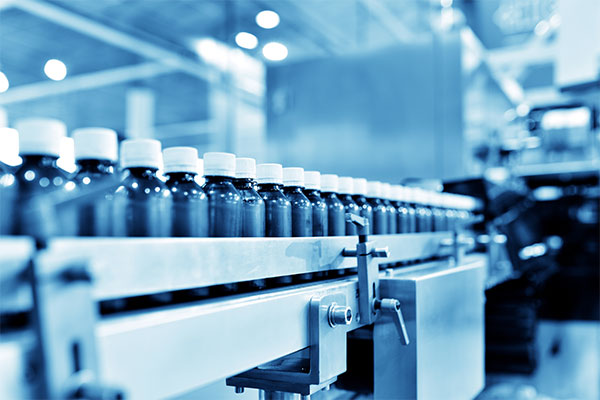
Small refrigeration compressors are integral to pharmaceutical cold chains1. These systems maintain a stable temperature, ensuring the safety and efficacy of temperature-sensitive medications2. By offering precise control, they prevent product degradation and preserve product quality.
With the increasing demand for temperature-sensitive pharmaceuticals, the need for reliable refrigeration systems has never been more significant. In this article, we explore the role of small refrigeration compressors3 and their importance in pharmaceutical cold chains1.
What is refrigeration system in pharmaceutical industry?
In the pharmaceutical industry, refrigeration systems4 are responsible for maintaining the optimal storage conditions of temperature-sensitive drugs5, vaccines, and other products. Without a reliable refrigeration system, many pharmaceutical products could be rendered ineffective.

A refrigeration system in the pharmaceutical industry regulates the temperature of sensitive products during storage and transportation. It ensures that products like vaccines, insulin, and biologics remain stable, preventing degradation due to temperature fluctuations.
The pharmaceutical industry relies heavily on refrigeration systems4 to preserve the efficacy of products. These systems use compressors to regulate the cooling process and maintain a constant, controlled environment. Proper refrigeration is crucial for many drugs, particularly vaccines, which can lose their potency if exposed to heat.
Refrigeration systems are classified into various types depending on the scale of operation. In smaller operations, such as local pharmacies or clinics, small refrigeration compressors3 are often used. These systems are efficient, easy to maintain, and capable of offering precise temperature control. Larger operations may rely on industrial refrigeration systems4 that are designed to handle larger volumes of temperature-sensitive products. However, small refrigeration compressors3 are becoming increasingly popular due to their compact size and high reliability.
One of the primary challenges in pharmaceutical refrigeration is ensuring consistent temperature control. Even small fluctuations can compromise the integrity of products. Small refrigeration systems4 provide a more stable environment due to their high precision and ability to maintain a constant temperature within narrow tolerances. This is particularly important when storing biologics, which are often highly sensitive to temperature changes.
| Refrigeration Type | Application Area | Advantages | Limitations |
|---|---|---|---|
| Small Refrigeration System | Local pharmacies, clinics | Compact, cost-effective, precise temperature control | Limited storage capacity |
| Industrial Refrigeration | Large-scale distribution | Can handle large volumes, robust for long-term use | More complex, higher operational costs |
What is the cold chain in the pharmaceutical industry?
The cold chain6 refers to the transportation and storage of temperature-sensitive products7 within a controlled temperature range. In the pharmaceutical industry, this ensures that drugs, vaccines, and other sensitive products do not degrade during transport.
A cold chain6 in the pharmaceutical industry involves maintaining a consistent temperature from production through transportation to final distribution. This ensures the potency and safety of sensitive products like vaccines and biologics.
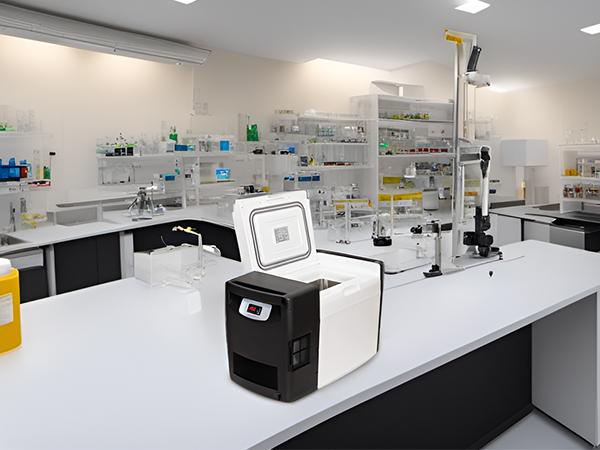
Cold chains in the pharmaceutical industry are essential for maintaining the quality and effectiveness of temperature-sensitive products7. These products include vaccines, biologics, and certain medications that require storage at specific temperatures to prevent spoilage or degradation.
The cold chain6 process typically starts at the manufacturing facility, where products are stored at the recommended temperature before being shipped. From there, products are transported using temperature-controlled containers, including refrigerated trucks, and stored in temperature-controlled warehouses until they reach their final destination. At every stage, refrigeration systems ensure that the product’s integrity is maintained, preventing the loss of efficacy or even the risk of contamination.
For pharmaceutical cold chain6s, temperature monitoring8 is key. A small refrigeration compressor plays a significant role here, as it ensures that the cooling system maintains the required temperature, with little fluctuation. Many modern systems include IoT (Internet of Things) technology, which helps in real-time monitoring of temperatures and allows for quick interventions in case of any deviations. This technology makes the cold chain6 more reliable and helps pharmaceutical companies ensure compliance with industry standards.
| Cold Chain Step | Temperature Range Required | Technology Used |
|---|---|---|
| Manufacturing | 2-8°C (for most vaccines) | Refrigeration, temperature sensors |
| Transportation | 2-8°C or lower depending on product | Refrigerated trucks, GPS tracking |
| Final Storage | Varies (depends on product) | Warehouse refrigeration, IoT monitoring |
Small refrigeration cooling vs traditional cooling in Pharmaceutical Cold Chains
The transition from traditional cooling methods to small refrigeration systems9 in pharmaceutical cold chains is gaining momentum. Let’s explore the key differences and advantages of these systems.
Small refrigeration systems offer precision and efficiency compared to traditional cooling methods. Their ability to maintain a consistent temperature makes them ideal for pharmaceutical cold chains, where stability is critical.

Traditional cooling systems, such as large industrial freezers or cooling chambers, have been used in the pharmaceutical industry for decades. These systems are designed to handle large quantities of products and are often found in centralized warehouses or distribution centers. However, they come with certain limitations. They are typically bulky, energy-intensive, and may not provide the level of precision required for sensitive products.
On the other hand, small refrigeration systems9, equipped with advanced micro compressors, are designed to offer more flexibility. These systems are smaller, more energy-efficient10, and capable of offering more precise temperature control, which is crucial in the pharmaceutical industry. Small refrigeration units are ideal for situations where space is limited or when products need to be stored in a decentralized manner.
One of the primary advantages of small refrigeration compressors is their ability to maintain a consistent temperature with minimal fluctuations. This is particularly important when dealing with biologics, which can be damaged by even slight temperature changes. Additionally, small refrigeration systems9 often come with built-in monitoring capabilities, which allow for real-time temperature tracking and data logging. This ensures that any deviations from the required temperature range are quickly identified and rectified.
| System Type | Temperature Control Accuracy | Energy Efficiency | Application Area |
|---|---|---|---|
| Traditional Cooling | Moderate | Less efficient | Large-scale storage |
| Small Refrigeration System | High precision, minimal fluctuation | Highly efficient | Localized storage, transport |
The advantages of Small refrigeration system in Pharmaceutical Cold Chains
Small refrigeration systems bring several advantages to the pharmaceutical cold chain, from energy efficiency to improved temperature stability. Let’s dive into the key benefits they offer.
Small refrigeration systems offer superior energy efficiency, smaller footprint, and more precise temperature control. These advantages make them particularly well-suited for pharmaceutical cold chains, where every degree matters.
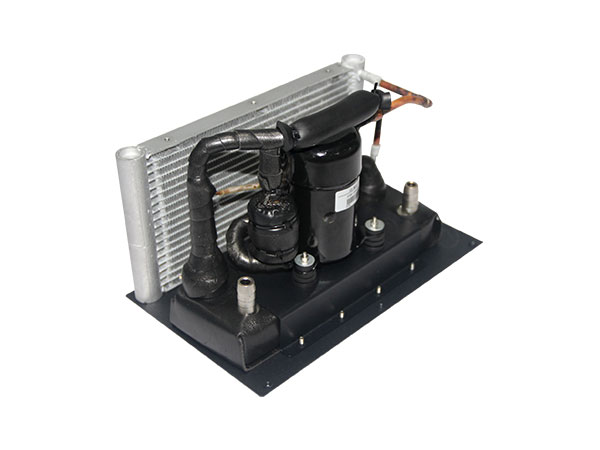
The adoption of small refrigeration systems in pharmaceutical cold chains has been driven by several factors, with energy efficiency being one of the top considerations. Traditional large-scale refrigeration systems can consume significant amounts of energy, especially when they are required to operate 24/7 in large distribution centers. Small refrigeration systems, in contrast, use less energy, making them more sustainable and cost-effective in the long run.
Moreover, small refrigeration systems are highly adaptable. They can be easily integrated into different stages of the cold chain, from local pharmacies to remote clinics. Their compact size makes them ideal for decentralized operations, where space is often limited. This flexibility also allows for a more tailored approach to temperature management, as the refrigeration system can be sized to meet the specific needs of each facility.
Temperature precision is another key advantage. Small refrigeration systems can maintain temperatures within a narrow range, reducing the risk of product degradation. This is particularly important for biologics and vaccines, which can be highly sensitive to temperature fluctuations. Real-time monitoring, which is often incorporated into these systems, provides an added layer of assurance, ensuring that products are stored and transported at the optimal temperature.
| Advantage | Benefit |
|---|---|
| Energy Efficiency | Lower operating costs, more sustainable |
| Compact Size | Ideal for decentralized storage and transport |
| Temperature Precision | Ensures product integrity, reduces spoilage risk |
How Small Refrigeration Compressors Ensure Reliability in Pharmaceutical Cold Chains
Small refrigeration compressors11 ensure reliability by maintaining stable temperatures in pharmaceutical cold chains, even in challenging conditions. Let’s explore how they achieve this.
Small refrigeration compressors11 provide high precision and reliability, ensuring that sensitive pharmaceutical products are kept within their required temperature ranges. Their consistent performance is crucial for maintaining the quality and safety of temperature-sensitive medications12.
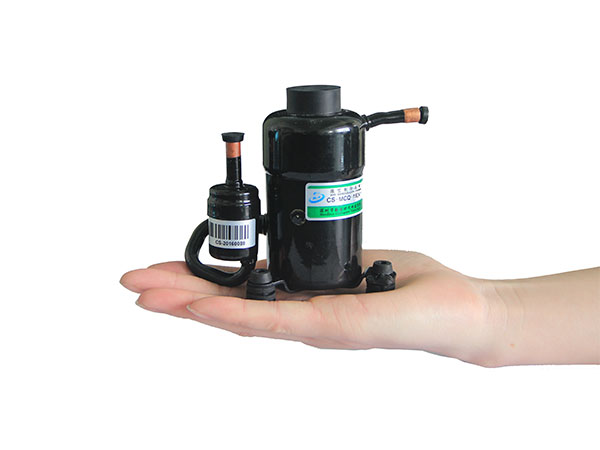
Small refrigeration compressors11 are designed with advanced technology that allows them to maintain a stable and consistent temperature, even in fluctuating environmental conditions. This is particularly important in the pharmaceutical industry, where the safety and efficacy of drugs depend on maintaining precise temperature control throughout the cold chain.
One of the key features of small refrigeration compressors is their ability to adjust cooling capacity based on the needs of the system. This is especially valuable when dealing with products that require different temperature settings. These compressors are equipped with micro DC inverter technology, which enables them to regulate cooling capacity in real-time, providing a more energy-efficient and precise solution compared to traditional compressors.
Additionally, small refrigeration compressors often come with built-in sensors and monitoring systems, which allow for continuous tracking of temperature. In the event of any temperature deviation, the system can immediately alert operators, allowing for prompt corrective actions. This reduces the risk of product spoilage and ensures that the cold chain remains intact.
| Feature | Benefit |
|---|---|
| Micro DC Inverter Technology | Allows for precise temperature regulation, energy efficiency |
| Built-in Sensors | Continuous temperature monitoring and alerts |
| Adaptive Cooling Capacity | Adjusts cooling based on real-time requirements |
Conclusion
Small refrigeration compressors are vital to maintaining the integrity of pharmaceutical cold chains. Their precision, reliability, and energy efficiency ensure that sensitive products remain safe throughout transport and storage.
-
Learn about the critical role of cold chains in maintaining the integrity of pharmaceutical products and preventing degradation. ↩ ↩
-
Discover the challenges and solutions for storing and transporting temperature-sensitive medications effectively. ↩
-
Explore how small refrigeration compressors enhance the safety and efficacy of temperature-sensitive medications in the pharmaceutical industry. ↩ ↩ ↩
-
Understanding refrigeration systems is crucial for maintaining drug efficacy. Explore this link for in-depth insights. ↩ ↩ ↩ ↩
-
Learn about the importance of temperature-sensitive drugs and their storage requirements to ensure efficacy. ↩
-
Understanding the cold chain’s role is crucial for ensuring the safety and efficacy of pharmaceuticals. Explore this link for in-depth insights. ↩ ↩ ↩ ↩ ↩
-
Learn about the management of temperature-sensitive products to ensure their quality and effectiveness in healthcare. ↩ ↩
-
Discover the latest technologies in temperature monitoring that enhance the reliability of pharmaceutical cold chains. ↩
-
Discover how small refrigeration systems enhance efficiency and precision in pharmaceutical cold chains, ensuring product safety. ↩ ↩ ↩
-
Explore the benefits of energy-efficient refrigeration systems, including cost savings and environmental impact in the pharmaceutical industry. ↩
-
Discover how small refrigeration compressors enhance reliability and efficiency in pharmaceutical cold chains, ensuring product safety. ↩ ↩ ↩
-
Explore best practices for handling temperature-sensitive medications to ensure their safety and efficacy during storage and transport. ↩

